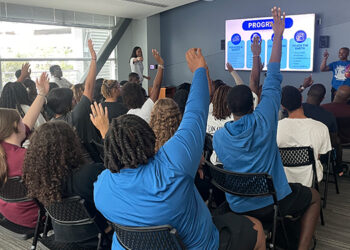You have ideas, but the department has priorities. How do you convey the importance of your idea so that it climbs the priority ladder? Writing a strong proposal is one way for you to demonstrate that your idea is well thought out, addresses a problem and most importantly, delivers value.
Understand that a great Campus Recreation program is one that offers a diverse catalog of programs and services and requires capital to support facilities, equipment and personnel. Your supervisor is continually challenged to strike a balance against many competing interests while aiming to hit the department’s performance goals each year. How will your proposal help? Ask yourself three questions:
- Does your proposal compliment or enhance the departments existing catalog of programs and services?
- Do the deliverables within your proposal align with the department’s mission, vision and values?
- Does your proposal support the operational business plan of the department?
If you answer yes to all three questions above, then it’s time to start crafting your proposal. Below are five tips that will help you create an effective proposal.
-
Timing
Every fiscal year has a rhythm, and the more attune you are with the business cycle of the department, the greater your chances are at earning a receptive review of your proposal. A realistic timeline should accompany your proposal and should be strategically linked to an optimal period within the business cycle.
-
Format
Be succinct! Your proposal needs to contain enough information to be credible, yet brief enough to be understood quickly. State the problem your proposal seeks to address and provide historical context and data. Use graphics and charts to tell the story and enlist the help of an editor to ensure the proposal reads effectively. Write objectively and with the interests of the entire department mind.
-
Budget
Realize that there is a cost for doing everything. Nothing destroys a proposal’s credibility faster than overlooked expenses. If you are proposing a new recreational program, know whether it’s going to run at-cost, at- loss, or generate net revenue. If it will not generate net revenue, be prepared to demonstrate the value your new program provides the department and why an at-cost or at-loss program should become a priority. Supervisors like to have choices when evaluating a proposal, and so when possible, provide a limited number of tiered solutions and corresponding budget.
-
Delivery
Prepare your supervisor for your proposal. Let them know you’ve identified a possible solution to a problem, and that you’d like their support in drafting a proposal for their consideration. Use these short conversations with your supervisor to incrementally educate and advocate. A prepared supervisor is more likely to remain receptive to your proposal. Once your proposal is crafted, deliver it in person and allow them generous time to review. Don’t be shy to follow up, and be open to feedback and revision if it helps advance your proposal.
-
Evaluation & Assessment
Follow through is important. Especially if you received financial support to execute your proposal. It’s your job to establish baseline analytics and to then track your proposal’s performance. Schedule regular performance reports to keep your supervisor informed. In order to demonstrate ROI, you must incorporate data and analytics into your reports.
Writing an effective proposal is a skill that improves with experience. Identifying challenges and proposing solutions is an operative way to add value to your department. Take the time to draft your proposal and then, if successfully granted, execute your proposal according to plan. If you can amass a portfolio of successful proposals, you will create a niche for yourself as a practitioner capable of delivering on your vision.
Tim Mertz is the Director of Recreation at MIT.










